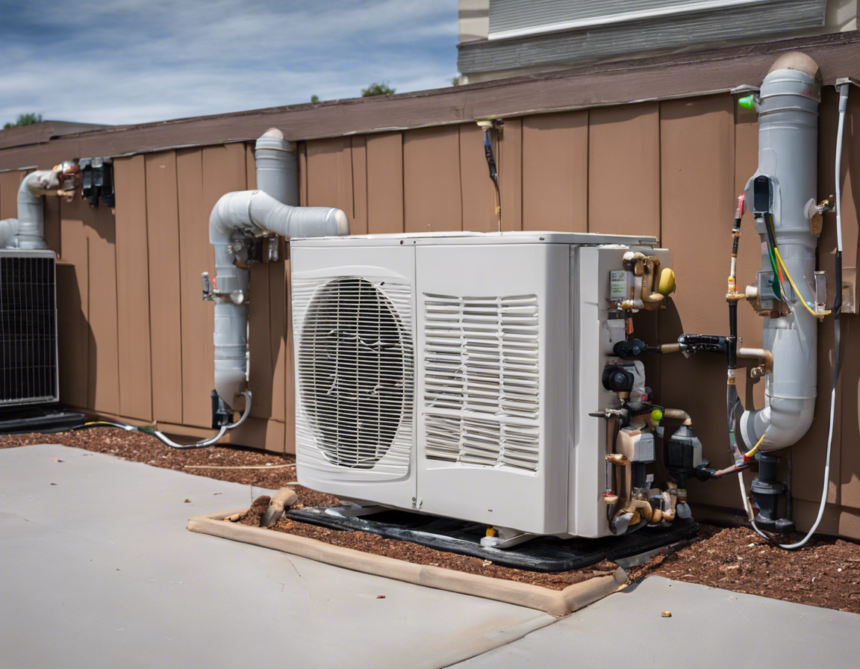Air conditioning systems are essential for maintaining a comfortable indoor environment, especially during hot summer months. An important component of an AC system is the refrigerant, which is responsible for cooling the air that is circulated throughout your home. However, refrigerant leaks can occur over time, leading to a decrease in the system’s efficiency and potential damage if left unresolved. In this guide, we will discuss the importance of detecting and repairing AC refrigerant leaks to keep your system running smoothly and effectively.
The Role of Refrigerant in Your AC System
Before delving into the topic of refrigerant leaks, it’s important to understand the role that refrigerant plays in your AC system. Refrigerant is a chemical compound that cycles through the system, absorbing heat from indoor air and releasing it outside. This process allows the system to cool the air that is distributed throughout your home. Common types of refrigerants used in residential AC systems include R-22 and R-410A.
Signs of AC Refrigerant Leaks
Detecting a refrigerant leak early is crucial to prevent further damage to your AC system. Some common signs that may indicate a potential refrigerant leak include:
1. Decreased Cooling Performance: If you notice that your AC system is not cooling your home as effectively as it used to, it could be a sign of a refrigerant leak.
2. Hissing Sounds: A noticeable hissing sound coming from the AC unit may indicate a refrigerant leak.
3. Ice Build-Up on the Evaporator Coil: A refrigerant leak can cause the evaporator coil to freeze, leading to reduced cooling efficiency.
4. Increased Energy Bills: A refrigerant leak can cause your AC system to work harder to maintain the desired temperature, resulting in higher energy bills.
5. Visible Refrigerant Stains: If you notice any oily or dark stains around the AC unit, it could be a sign of a refrigerant leak.
If you observe any of these signs, it is important to address the issue promptly to prevent further damage to your AC system.
Detecting Refrigerant Leaks
Detecting a refrigerant leak in your AC system requires the expertise of a qualified HVAC technician. Some common methods used to detect refrigerant leaks include:
1. Visual Inspection: A technician will inspect the AC system for any visible signs of refrigerant leaks, such as oil stains or frost build-up.
2. Pressure Testing: A pressure test can be conducted to determine if there is a drop in pressure within the system, indicating a refrigerant leak.
3. Electronic Leak Detection: Advanced tools and equipment, such as electronic leak detectors, can be used to pinpoint the exact location of a refrigerant leak.
4. UV Dye Testing: UV dye can be added to the refrigerant, allowing the technician to easily detect leaks using a UV light.
Once the leak has been detected, the next step is to proceed with repairing the leak and recharging the system with the appropriate amount of refrigerant.
Repairing AC Refrigerant Leaks
Repairing an AC refrigerant leak should be performed by a licensed HVAC professional to ensure the effectiveness and safety of the repair. Some common methods used to repair refrigerant leaks include:
1. Sealing the Leak: Depending on the size and location of the leak, the technician may be able to seal the leak using epoxy or solder.
2. Replacing Damaged Components: In some cases, damaged components that are causing the leak may need to be replaced to prevent further leaks.
3. Recharging the System: Once the leak has been repaired, the technician will recharge the system with the appropriate amount of refrigerant to restore its cooling efficiency.
It is important to note that simply adding more refrigerant to the system without repairing the leak is not a sustainable solution and can lead to further damage. Regular maintenance of your AC system can help prevent refrigerant leaks and ensure its optimal performance.
Frequently Asked Questions (FAQs)
- How often should I have my AC system inspected for refrigerant leaks?
-
It is recommended to have your AC system inspected at least once a year to check for refrigerant leaks and ensure its proper functioning.
-
Can I repair a refrigerant leak on my own?
-
Repairing a refrigerant leak requires specialized knowledge and equipment, so it is best to leave it to a professional HVAC technician.
-
What are the environmental impacts of refrigerant leaks?
-
Refrigerant leaks can contribute to ozone depletion and climate change, making it crucial to address leaks promptly.
-
Does regular maintenance help prevent refrigerant leaks?
-
Yes, regular maintenance, including cleaning and inspection of your AC system, can help identify potential issues, including refrigerant leaks.
-
How do refrigerant leaks affect the efficiency of my AC system?
- Refrigerant leaks can cause your AC system to work harder to cool your home, leading to increased energy consumption and higher utility bills.
By being proactive in detecting and repairing AC refrigerant leaks, you can ensure that your system operates efficiently, effectively, and economically. Remember to schedule regular maintenance with a qualified HVAC technician to keep your AC system in optimal condition.


Leave a Reply